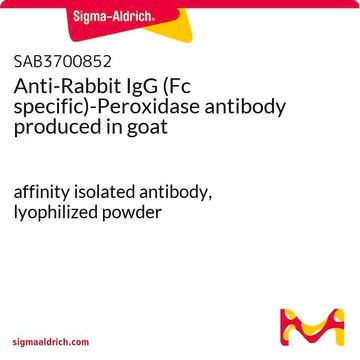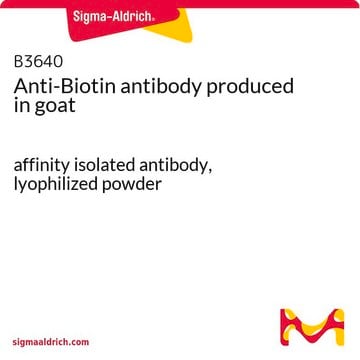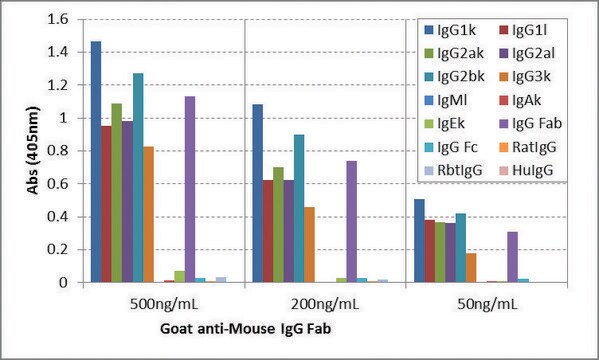SAB4200680
Anti-Biotin antibody, Mouse monoclonal
clone BN-34, purified from hybridoma cell culture
Sinonimo/i:
Monoclonal Anti-Biotin antibody produced in mouse, Bios II, Coenzyme R, D-Biotin, Vitamin B7, Vitamin H
About This Item
Prodotti consigliati
Origine biologica
mouse
Livello qualitativo
Forma dell’anticorpo
purified immunoglobulin
Tipo di anticorpo
primary antibodies
Clone
BN-34, monoclonal
Forma fisica
buffered aqueous solution
Reattività contro le specie
canine, human, bovine, rat, mouse
Concentrazione
~1 mg/mL
tecniche
ELISA: suitable
immunocytochemistry: suitable
immunoprecipitation (IP): suitable
indirect ELISA: 0.15-0.3 μg/mL
western blot: suitable
Condizioni di spedizione
dry ice
Temperatura di conservazione
−20°C
modifica post-traduzionali bersaglio
unmodified
Descrizione generale
Immunogeno
Azioni biochim/fisiol
Stato fisico
Esclusione di responsabilità
Not finding the right product?
Try our Motore di ricerca dei prodotti.
Codice della classe di stoccaggio
12 - Non Combustible Liquids
Classe di pericolosità dell'acqua (WGK)
WGK 1
Punto d’infiammabilità (°F)
Not applicable
Punto d’infiammabilità (°C)
Not applicable
Certificati d'analisi (COA)
Cerca il Certificati d'analisi (COA) digitando il numero di lotto/batch corrispondente. I numeri di lotto o di batch sono stampati sull'etichetta dei prodotti dopo la parola ‘Lotto’ o ‘Batch’.
Possiedi già questo prodotto?
I documenti relativi ai prodotti acquistati recentemente sono disponibili nell’Archivio dei documenti.
I clienti hanno visto anche
Il team dei nostri ricercatori vanta grande esperienza in tutte le aree della ricerca quali Life Science, scienza dei materiali, sintesi chimica, cromatografia, discipline analitiche, ecc..
Contatta l'Assistenza Tecnica.










